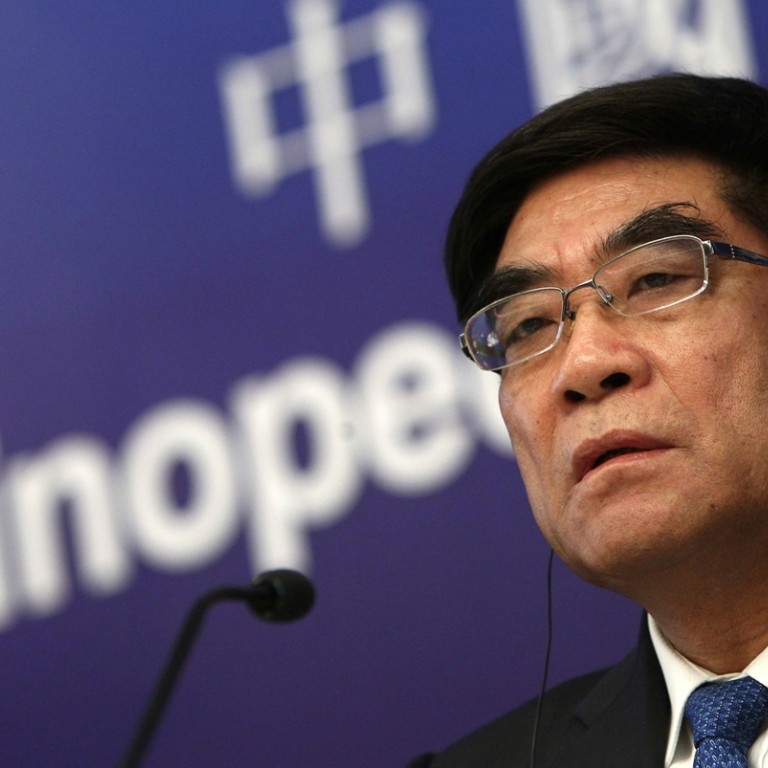
Sinopec chairman supports pay cuts for bosses of state-owned firms
Sinopec chairman Fu Chengyu said he is happy to accept Beijing’s decision to cut pay and perks for most of the country’s top state-owned enterprise (SOE) leaders.
Sinopec chairman Fu Chengyu said he is happy to accept Beijing’s decision to cut pay and perks for most of the country’s top state-owned enterprise (SOE) leaders and praised the Chinese socialist system for the reform that critics said may hurt executives’ incentives.
The comments made by the top manager of China’s largest refiner at the World Economic Forum in Tianjin came after China decided that more than 200 top executives from 72 leading SOEs may face massive pay cuts.
Detailed plans are yet to be disclosed. The reported last month that the central government would likely impose pay cuts of up to 50 per cent for state SOE leaders while also recruiting professional managers at market-based salary packages.
It is normal for individual people to feel unhappy about pay cuts, Fu said. However, he said such a move is in line with the state interest.
The whole world is criticising that senior executives have earned too much. I think we are on the right path
“The biggest difference between [the systems of] China and Western countries is that we pursue the goal of getting rich together,” said Fu.
“We have stressed that ordinary people are the owners of the country. But the income gap in our country has become too big,” he said.
Fu previously worked as chairman of CNOOC, another state-run energy giant with its assets listed in Hong Kong.
Upon leaving the post, Fu said he donated his HK$400 million in CNOOC stock options due to the fact he was running a state-owned enterprise, although that income was legal.
“Now the whole world is criticising that senior executives have earned too much. I think we are on the right path. If you want to earn a big sum, you should not stay at the post as a SOE leader,” said Fu.
“My international peers all respect me. This is something valuable and unique in China, which is more important than salary, than income.”
Dong Mingzhu, chairman of Zhuhai-based manufacturer Gree, a local government-owned company, said at the forum that her pay is based on market rates because Gree is a listed company.
But she said Beijing’s aim to introduce private players into SOEs as part of efforts to boost their operating efficiency may not necessarily work well.
“If the government retains its control on resources or acts as a major shareholder, if it continues to intervene using administrative tools, the mixed ownership may not necessarily be a good solution,” she said.
She said some local state-assets regulators are not much help to companies when they experience difficulties, but have great incentive to share any gains.
“That is a test. We have to fight with [the state-assets regulator], hold your principles until it gives up. In a highly competitive industry like ours, we may collapse if we give in.”

